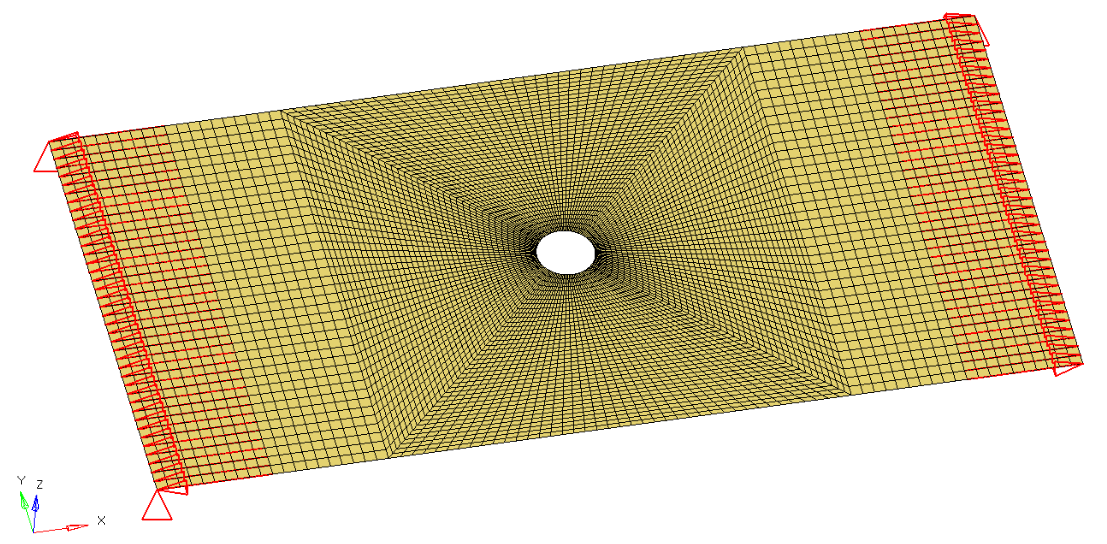OS-T: 3400 Design an Open Hole Tension (OHT)
Composite materials have become popular in the application of a variety of structures. The need for innovative designs has posed a great challenge. In this tutorial you will perform an optimization-driven design approach of an open-hole tension specimen using OptiStruct.
- Phase 1: Reference Design Synthesis (Free-size Optimization)
- Concept design synthesis Free-size optimization identifies the optimal ply shapes and locations of patches per ply orientation.
- Phase 2: Design Fine Tuning (Size Optimization)
- Design fine tuning Size optimization identifies the optimal thicknesses of each ply bundle.
- Phase 3: Ply Stacking Sequence Optimization
- Ply stacking sequence optimization Shuffling optimization obtains an optimal stacking sequence.
The process expands upon three important and advanced optimization techniques; free-size optimization, size optimization and ply stacking sequence optimization. By stringing these three techniques together, OptiStruct offers a unique and comprehensive process for the design and optimization of composite laminates. The process is automated and integrated in Altair Simulation by generating the input data for a subsequent phase automatically from the previous design phase.
Together with these steps, an initial and final analysis will be utilized to determine the baseline and final characteristics of the designed part.

Figure 1. Model Overview